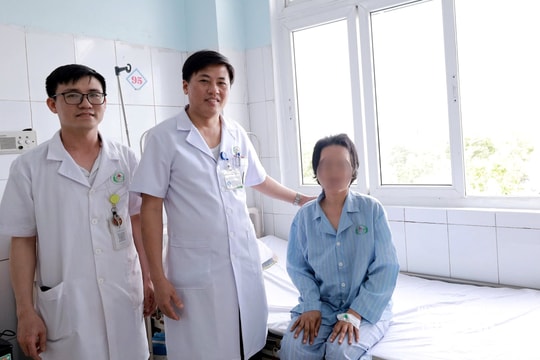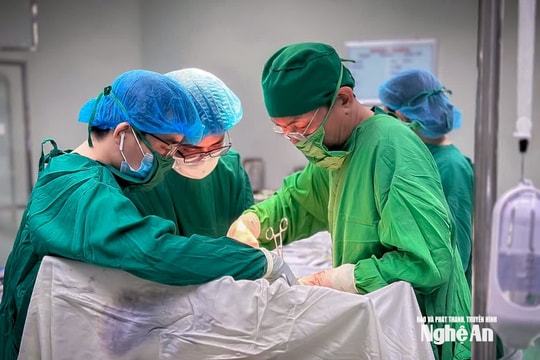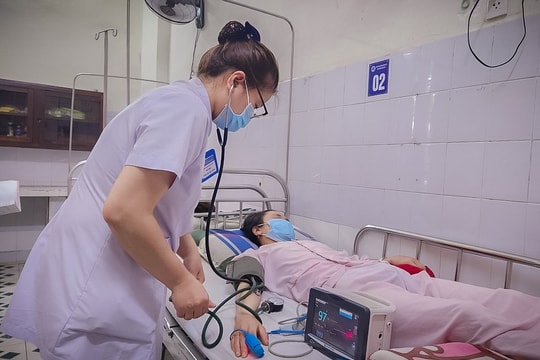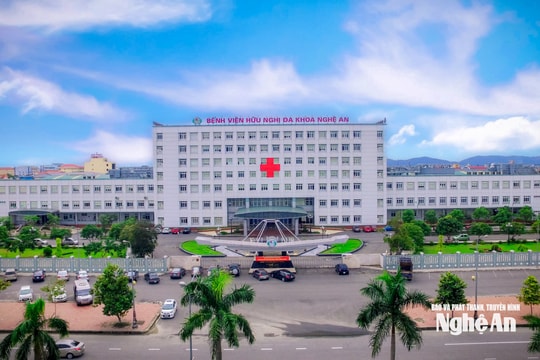Nghe An General Hospital of Friendship saved the life of a patient with a perforated heart and circulatory arrest.
(Baonghean.vn) - Patient H's survival is considered a great success because the wound in the heart was relatively large, bleeding and rapid heart compression caused early cardiac arrest.
On October 8, the Emergency Department of the Provincial General Hospital received a patient in extremely critical condition. The patient is PXH, 33 years old, from Xuan Yen commune, Nghi Xuan district, Ha Tinh province.
Upon admission, the patient was in a state of drowsiness, pale skin, rapid breathing, rapid pulse, blood pressure 70/50 mmHg. Information from family members revealed that about 30 minutes before admission, the patient was stabbed in the chest by someone else with a sharp object (suspected to be a fruit knife). After being stabbed, the patient felt chest pain, had difficulty breathing, felt dizzy, fell on the street and was taken to the emergency room by friends.
At the Emergency Department, the PXH patient was intubated, had an IV line created, and vasopressors used, etc. An on-site emergency ultrasound showed that the pericardium contained a lot of fluid. The Emergency Department held a consultation with the leaders of the relevant departments. The doctors diagnosed: The patient was in a coma, had circulatory collapse/penetrating chest wound, suspected cardiac wound with acute cardiac tamponade... The PXH patient was scheduled for emergency surgery.
At the time the patient was on the operating table, circulatory arrest occurred. The surgical team decided to perform an emergency chest opener, open the pericardium, and perform direct cardiac massage to restore the heart's rhythm. When opening the patient's pericardium, the surgical team found blood and blood clots, and the heart had collapsed and stopped beating.
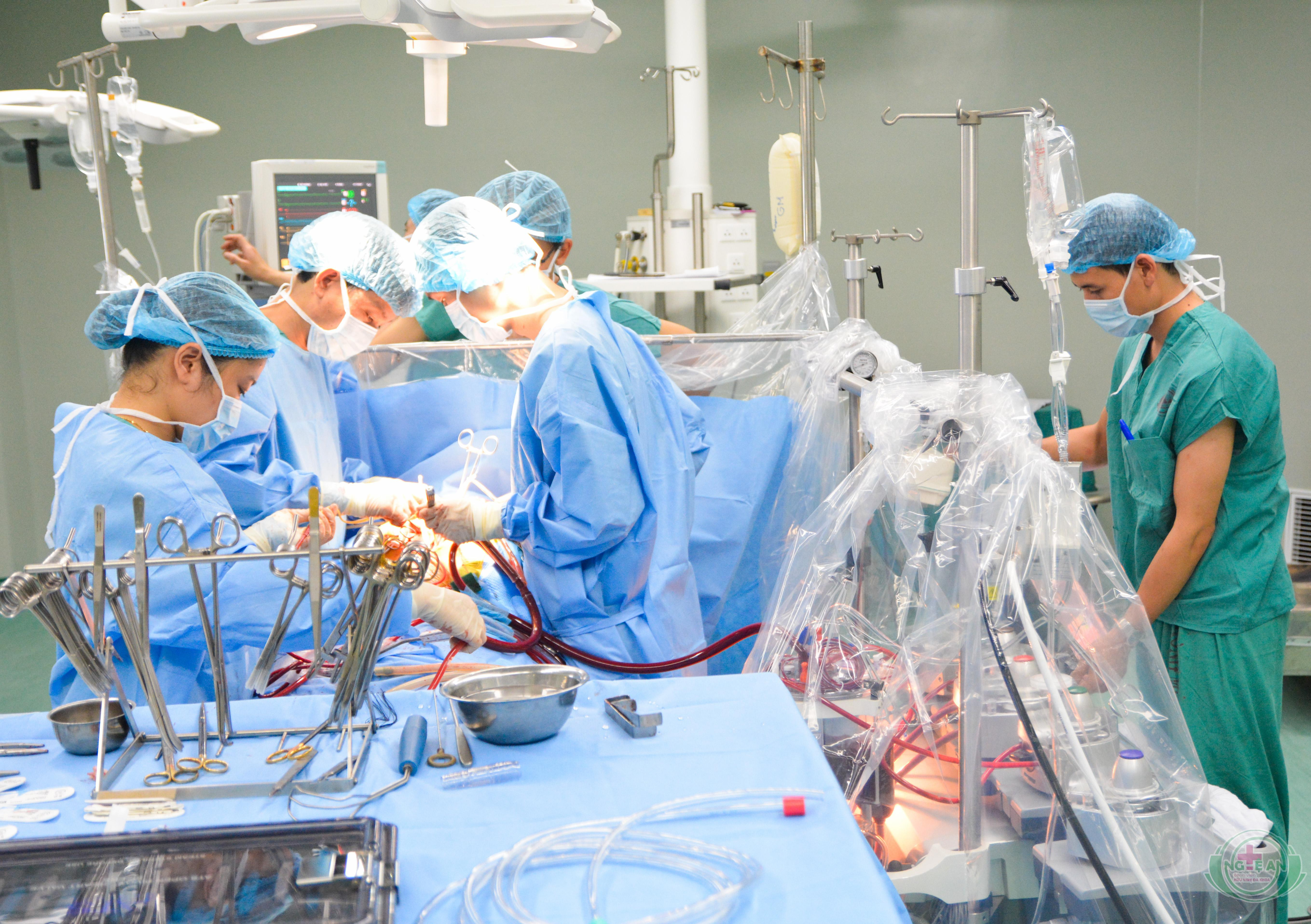 |
Heart surgery inNghe An General Friendship HospitalPhoto: Document |
The surgical team performed cardiac massage to restore the heart's rhythm; sutured a 1cm long wound that was bleeding in the anterior wall of the right ventricle with prolene 2.0. In addition, the surgical team also discovered and sutured a 1cm long wound in the left lower lobe of the lung that was bleeding and leaking air.
During this 90-minute surgery, the doctors encountered many difficulties in handling the heart wound in the ventricle area, which was quite large, bleeding profusely, creating blood clots in the pericardial cavity, compressing the heart, causing the heart to collapse and stop beating early.
The surgery was successful. After surgery, the patient was transferred to the Department of Surgical Intensive Care for further treatment. The patient's hemodynamics and vital signs gradually stabilized; the surgical wound was dry, little fluid drained, and echocardiogram showed normal cardiac function.
On the 3rd day after surgery, the patient was extubated. On the 6th day after surgery, the patient was transferred to the Department of Cardiothoracic Surgery, Heart Center for further treatment and monitoring.
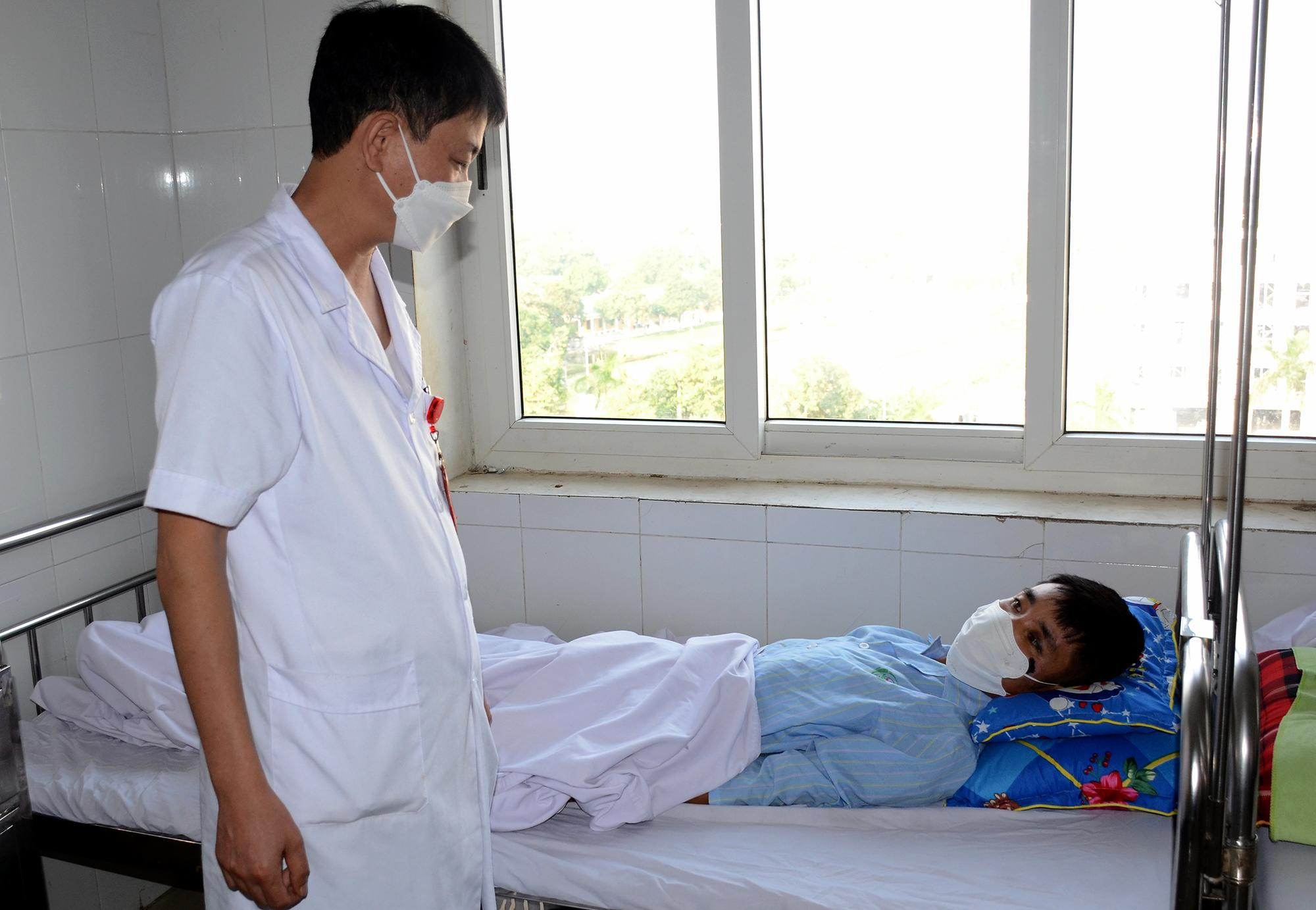 |
At present, the patient is fully conscious; able to walk and eat on his own. An echocardiogram showed no abnormalities in the heart's anatomy or function. The hospital will soon discharge the patient to return home. Photo: Thanh Chung |
Doctor Nguyen Huu Nam - Head of the Department of Cardiovascular and Thoracic Surgery said: At present (11th day after surgery), the patient is fully awake; can walk and eat by himself. The surgical wound has dried. The echocardiogram showed no abnormalities in the heart's anatomy and function. The hospital will soon discharge the patient to return home.
Also according to Dr. Nam: Previously, in addition to performing routine open heart surgery,Nghe An General Friendship HospitalAn has also performed surgery to save the lives of dozens of patients with trauma and heart injuries of all kinds. However, the case of saving the PXH patient was a great success, because the wound in the patient's heart was relatively large, bleeding and rapid cardiac tamponade caused early cardiac arrest. The hospital brought the patient back from the "grim reaper's" hands thanks to early diagnosis and thoracic surgery to release cardiac tamponade, suturing the heart wound and implementing other active treatment measures./.

